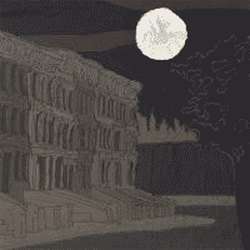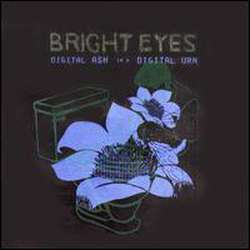When word broke out that Bright Eyes would be writing one final album before retiring the moniker—expectations were set pretty high. Since then, the band has retracted that statement. However, if The People’s Key ends up being the last we hear of Bright Eyes, then they conclude the story with a highly refined final chapter.
The album opens with the first discourse from Denny Brewer in “Firewall.” He sets a sci-fi tone for the record by speaking of alien figures, time, and space. It’s not long before Oberst begins voicing his poetry of layered themes and metaphors over the pulsing rhythm of the music. He makes many religious references relevant to the Rastafari movement, and religion is something that will become a recurring theme throughout the album. Next is the single, “Shell Games. “ It’s a song that feels like a return to form for Bright Eyes—encompassing a great melody and clever lyrics. Oberst opens the track referring to his past work before a catchy chorus about the difficulties of moving “heavy love” and mentions of Sisyphus. The following track, “Jejune Stars,“ bombards the listener as it turns into dance-y, pop-rock, number. It’s newer territory for Bright Eyes, but they do a wonderful job. After more speech from Brewer about a pomegranate, we get to “Approximate Sunlight.” This track is ornamented in Digital Ash’s songwriting, and there is something very entrancing about it. As we move along, we reach more references to the Rastafari with “Haile Selassie.” Musically, it’s a pretty dull track. Lyrically, it’s one of Oberst’s more complex compositions that’s heavily weighted in Biblical references.
The band kicks off the second half of the record with the track, “A Machine Spiritual (In the People’s Key).” This song has more of a Cassadaga feel to it. It’s with this track that the theme of the album begins to become clearer. Throughout the record, there have been hints of becoming one—particularly with the Rastafari references and the use of the pomegranate remark at the end of "Jejune Stars." This track builds on that idea and “starting over.” The following track is another pop-rock number, “Triple Spiral.” It’s one of the catchier songs and a nice change of pace after the past few songs. The subtle synth elements are a great addition to the melody. We then come to, arguably, the best tracks on The People’s Key. “Beginner’s Mind” is a combination of classic Bright Eyes and the approach they've taken with this album—opening with just Conor’s voice and his guitar with atmospheric effects. It sounds like it could have come from Lifted. Conor sings some of his simpler lyrics that encourages one to stick to being an child at heart—to hold onto that sort of innocence that children possess. Complimenting “Beginner’s Mind” is “Ladder Song.” Oberst goes back further and writes a song that’s reminiscent of Fevers and Mirrors. It features only his voice and a beautifully arranged piano composition. Despite the wonderful songwriting The People’s Key has presented, it has been lacking in moving songs such as “Ladder Song.” It’s a captivating track ripe with lovely imagery. The closer, however, is possibly the least moving song on the record. “One for You, One for Me,” is relatively straight forward. It keeps the same tempo from start to finish and feels very repetitive. Although, It does succeed in bringing a close to the thematic story well. Oberst makes the idea of oneness very clear—from the give and take of the content to the closing lines of, “You and me that is an awful lie. It’s I and I.” Finally, Brewer makes a return to give his closing statements that focus on acquiring peace through loving, enlightening, and understanding one another.
There’s no telling for sure if this will be the last we hear of Bright Eyes, but The People’s Key would be a perfect way to go out. The songwriting takes from all eras of their career, while still playing on a new field. Oberst delivers some of his best and most meaningful lyrics and Mike Mogis’ production is exquisite. You couldn’t ask for anything else.





